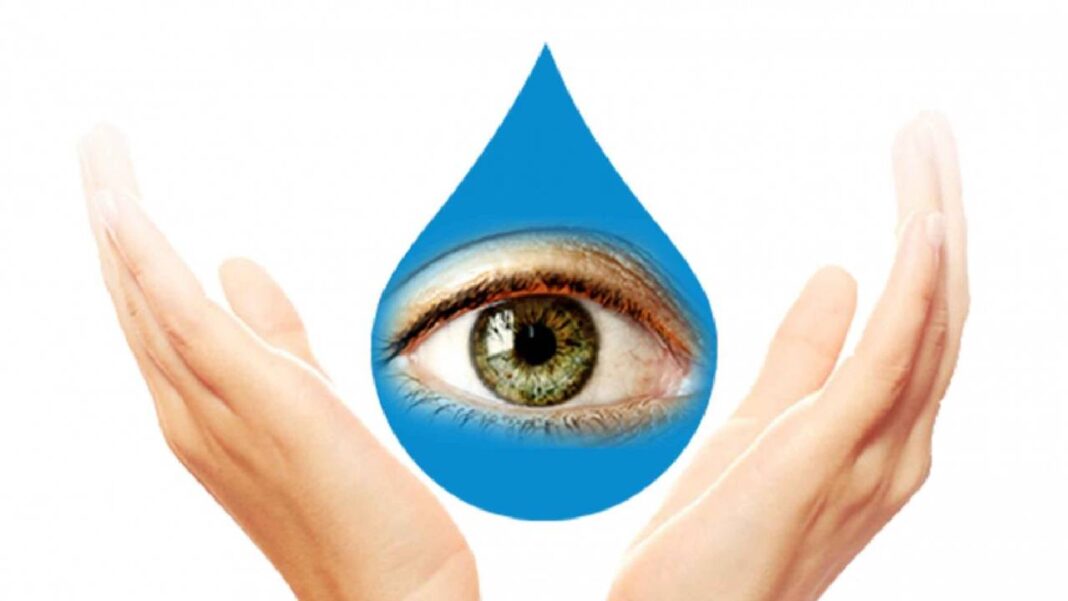Eye donation, (which leads to as corneal transplantation), is the process of donating one’s eyes after death to help restore sight to individuals with corneal blindness. Despite advancements in medical science, a considerable gap remains between the demand for corneal transplants and the availability of donated eyes.
As per the National Programme for Control of Blindness and Visual Impairment (NPCBVI), approximately 10 lakh people are suffering from corneal blindness and waiting for corneal transplants. This proves that a lot needs to be done to enhance awareness among people, that eye donation is crucial for those desperately waiting for an eye transplant. Creating awareness about eye donation could significantly reduce the prevalence of corneal blindness and enhance the quality of life for many. If all the 8 million plus people dying in India were to donate their eyes, we would eliminate the backlog of corneal blindness in 3 under 3 months!! But this number has been festering for many decades now.
Dr. Sudhakar Potti, Chief Medical Officer, Sankar Eye Hospital, Guntur shares some of the crucial factors that need prior focus to increase awareness of eye donation:
Lack of information: A substantial percentage of the population particularly in the rural area still needs to be completely aware of the concept of eye donation. Educating communities about the simple yet transformative act of donating eyes can help dispel myths and misconceptions and leads to broader acceptance of eye donation.
Myths and misconceptions: Misconceptions about eye donation also play a significant role in hindering the growth of donor pools. False beliefs, such as the fear that donating eyes can lead to disfigurement or impact the next life, need to be debunked through accurate information dissemination. Highlighting the scientific procedures and ethical practices involved in eye donation can help counter these myths effectively.
Impact of celebrity endorsement: Celebrity endorsements have been shown to significantly impact social causes. While some celebrities have supported eye donation campaigns in India, more widespread celebrity involvement can bring attention to the cause, inspire donations, and foster a culture of giving back to society. Collaborations between prominent figures and healthcare organizations can create a ripple effect in promoting eye donation awareness.
Cultural and religious beliefs: One of the significant challenges to eye donation awareness in India is deeply rooted in cultural and religious beliefs. Many Indians hold the belief that the body must remain intact after death, which can discourage organ and tissue donation. Overcoming these barriers requires a comprehensive educative campaign that respects cultural sentiments while conveying the immense impact a single eye donation can have on restoring vision for multiple recipients.
Public-private partnerships: To improve eye donation rates, collaborations between government agencies, healthcare institutions, and non-governmental organizations (NGOs) are crucial. Public-private partnerships will certainly strengthen outreach efforts, streamline the donation process, and ensure that donated eyes reach those in need promptly. Grief counselling at the time of death can crucially up the acceptance of eye donation. Grief Counsellors could be linked to First Response Road traffic accident personnel and multispecialty hospitals. The need to establish a single-number call centre that can direct eye banks/eye collection centres to the place of death once grief counselling is done cannot be overstressed.
Eye donation is a remarkable act that has a transformative impact on corneal transplants. In a country as diverse and populous as India, raising awareness about eye donation remains a critical endeavour. Addressing cultural, religious, and informational barriers, dispelling myths, and forging public-private partnerships are all essential steps toward achieving a society where eye donation is embraced as a compassionate act by each and every citizen in the country. By shedding light on this issue, India can make significant strides in reducing corneal blindness, improving healthcare equality, and providing countless individuals with the gift of vision.




